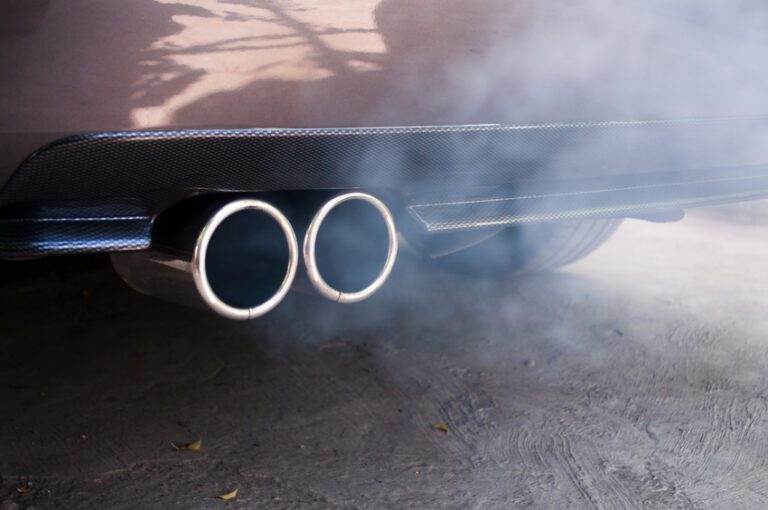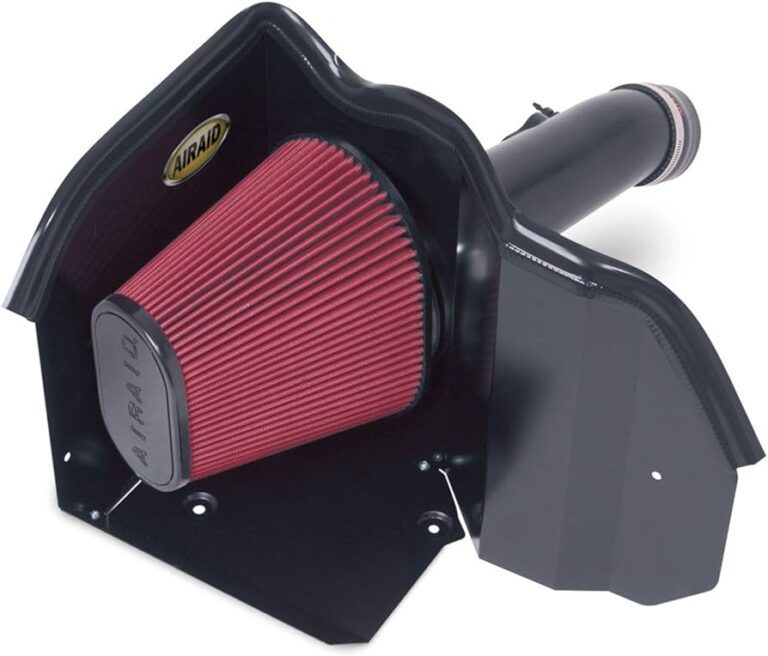Discover the Alarming Symptoms of a Defective Exhaust System: Don’t Ignore!
Symptoms of a defective exhaust system include excessive noise and decreased engine performance, indicating potential issues with mufflers, catalytic converters, or exhaust pipes. A properly functioning exhaust system is crucial for the overall performance of your vehicle.
It plays a vital role in expelling harmful gases from the engine and reducing noise pollution. However, over time, the exhaust system can develop problems, leading to adverse effects on your vehicle’s performance. Identifying the symptoms of a defective exhaust system is essential to address the issues promptly and ensure safe driving conditions.
We will discuss some common indicators that suggest your exhaust system may be defective and in need of repair or replacement. By recognizing these signs, you can take appropriate actions to maintain your vehicle’s efficiency and prolong its lifespan.
Understanding The Function Of The Exhaust System
Symptoms of a Defective Exhaust System
The exhaust system plays a critical role in the overall performance of a vehicle. Understanding its function can help in identifying potential issues. The key components of the exhaust system are:
| 1. Exhaust Manifold | The exhaust manifold collects exhaust gases from the engine cylinders |
| 2. Catalytic Converter | The catalytic converter reduces harmful emissions by converting them into less harmful substances |
| 3. Muffler | The muffler reduces noise produced by the exhaust gases |
The exhaust system also aids in the vehicle’s performance. It helps in expelling the exhaust gases efficiently, preventing backpressure that can reduce engine power. Additionally, a well-functioning exhaust system plays a crucial role in maintaining fuel efficiency. A defective exhaust system can lead to decreased fuel economy, as the engine may have to work harder to expel exhaust gases. It can also result in excessive noise, a rotten egg smell, or decreased acceleration. Regular inspection and maintenance are essential to ensure the exhaust system is in good working order.
Recognizing The Alarming Symptoms
Symptoms of a Defective Exhaust System can be alarming and should not be ignored. Unusual noises and vibrations are one of the key warning signs that something may be wrong. If you notice any rattling, hissing, or banging sounds coming from the exhaust system, it could indicate a leak or a loose component. Additionally, if you feel excessive vibrations while driving, especially during acceleration, it could be a sign of a damaged muffler or a problem with the exhaust pipes.
Another symptom to look out for is decreased acceleration and power. If your vehicle is struggling to pick up speed or it feels sluggish, it could be due to a clogged or partially blocked exhaust system. This can happen when the catalytic converter or muffler becomes damaged or obstructed, resulting in restricted airflow.
Increased emissions and odors are also indicators of an exhaust system issue. If you smell strong odors, such as burning rubber or sulfur, or notice excessive smoke or vapor coming from the tailpipe, it could suggest a problem with the catalytic converter or exhaust manifold. Moreover, an increase in emissions, as detected by a vehicle emissions test, can be a clear indication that the exhaust system is not functioning properly.
The Dangers Of Ignoring Exhaust System Issues
Ignoring issues with your vehicle’s exhaust system can lead to a variety of dangers and potential damages. First and foremost, exposure to toxic fumes can pose serious health risks to both you and your passengers. Carbon monoxide, which is present in the exhaust fumes, is an odorless and colorless gas that can be lethal if inhaled in high concentrations.
Another peril of neglecting exhaust system problems is the risk of fire. A damaged exhaust system can result in hot exhaust gases coming into contact with flammable materials under your vehicle or in the surrounding environment. This can easily lead to a fire that can cause significant damage to your vehicle and potentially put your safety at risk.
| Potential damages to other parts of the vehicle |
|---|
| 1. Excessive heat from a defective exhaust system can damage nearby components, such as wiring and fuel lines. |
| 2. Increased backpressure caused by a clogged or faulty exhaust system can negatively impact engine performance and potentially damage internal engine parts. |
| 3. Corrosion of the exhaust system components due to exposure to moisture and chemicals can lead to premature failure and costly repairs. |
To minimize the risks associated with a defective exhaust system, it’s essential to address any issues promptly. Regular inspections and maintenance can help identify potential problems early on, ensuring that your vehicle’s exhaust system functions properly and keeps you and your passengers safe.
Loud And Unusual Noises
When it comes to your vehicle’s exhaust system, loud and unusual noises can indicate a defect. The rattling, hissing, or roaring sounds that come from your car’s exhaust system are a clear sign that something is not right. These noises can be caused by a variety of issues, such as a loose or damaged muffler, a hole or leak in the exhaust pipe, or a malfunctioning catalytic converter.
If you are experiencing any of these noises, it is important to identify the source as soon as possible. Ignoring the problem can lead to further damage and potentially costly repairs. Visually inspecting the exhaust system for any visible cracks or holes is a good place to start. Additionally, checking the exhaust system for loose or damaged components can help pinpoint the issue.
Remember, a defective exhaust system not only affects the performance of your vehicle but also poses a risk to your health. Harmful gases can leak into the cabin, causing respiratory problems and other health issues. If you suspect your exhaust system is defective, it is best to consult a professional mechanic for a thorough inspection and necessary repairs.
Decreased Performance And Efficiency
When it comes to symptoms of a defective exhaust system, decreased performance and efficiency are often indicators that something is amiss. If you notice sluggish acceleration and reduced power in your vehicle, it could be a sign of an exhaust system problem. The exhaust system is responsible for removing gases from the engine, and if it becomes faulty, it can impact the engine’s performance.
In addition to decreased power, poor fuel efficiency can also signal an issue with the exhaust system. If your vehicle is burning more fuel than usual or you find yourself refilling the tank more frequently, it may be due to a problem with the exhaust system. A faulty exhaust system can cause improper fuel combustion, resulting in wasted fuel and decreased efficiency.
Increased Emissions And Odors
One of the common symptoms of a defective exhaust system is increased emissions and odors. Unpleasant smells can be noticed both inside and outside of the vehicle. The smell can range from a burning rubber or oil smell to a strong sulfur odor. Another sign is the presence of smoke or visible exhaust leaks. If you see smoke coming from the exhaust pipe or notice any visible leaks, it indicates a problem with the exhaust system.
Regular Inspection And Maintenance
Regular inspection and maintenance of your exhaust system is vital to ensure its proper functioning and avoid any potential issues. It is recommended to have routine check-ups performed by a professional to identify any symptoms of a defective exhaust system early on.
During these check-ups, experts will conduct common maintenance tasks on the exhaust system to keep it in good condition. These tasks may include:
| Common Maintenance Tasks |
|---|
| 1. Visual Inspection: Checking for any visible signs of damage, such as cracks or leaks. |
| 2. Exhaust System Cleaning: Removing dirt, debris, and rust buildup that can affect performance. |
| 3. Component Replacement: Replacing worn-out or damaged parts, such as the muffler or catalytic converter. |
| 4. Exhaust System Testing: Conducting diagnostic tests to assess the overall performance and emissions of the system. |
| 5. System Alignment: Ensuring proper alignment and attachment of the exhaust components. |
Regular maintenance not only helps to prevent potential problems but also prolongs the lifespan of your exhaust system. By addressing any issues early on, you can avoid costly repairs and ensure your vehicle operates smoothly and efficiently.
Addressing Issues Promptly
htmlSymptoms of a Defective Exhaust System
Addressing Issues Promptly
DIY troubleshooting for minor problems:
1. Unusual noises: Rattling, hissing, or loud thumping sounds may indicate a problem with your exhaust system. Inspect the muffler, exhaust pipes, and catalytic converter for any signs of damage or leaks.
2. Decreased fuel efficiency: If you notice a sudden drop in your vehicle’s fuel efficiency, it could be a sign of an exhaust system issue. Check for any clogs or restrictions in the system that could be causing the decrease.
3. Strong exhaust odors: A strong smell of exhaust fumes inside or outside the vehicle can indicate a leak in the system. Inspect the connections and seals for any gaps or damage.
Seeking professional help for complex repairs:
If you encounter major issues with your exhaust system or if the troubleshooting steps above do not resolve the problem, it is recommended to seek the assistance of a professional mechanic. They have the expertise and tools to accurately diagnose and repair complex exhaust system problems.
Proactive Measures For Longevity
Proactive Measures for Longevity
Using high-quality exhaust components: Investing in high-quality exhaust components can significantly improve the longevity of your exhaust system. Opt for reputable brands known for their durability and performance.
Avoiding harsh driving conditions and habits: Aggressive driving, such as excessive speeding, rapid acceleration, and abrupt braking, can put undue stress on your exhaust system. Avoid these habits to prevent premature wear and tear.
Regular maintenance and inspections: Schedule routine maintenance and inspections to identify any potential issues early on. Replace worn-out parts promptly to prevent further damage to the exhaust system.
Listening for unusual noises: Pay attention to any strange noises coming from your vehicle, such as rattling, hissing, or rumbling sounds. These can indicate a defective exhaust system that requires immediate attention.
Monitoring exhaust fumes: Keep an eye on the color and consistency of your vehicle’s exhaust fumes. Unusual colors, such as excessive smoke or black soot, can indicate problems with the exhaust system.
Regularly cleaning and clearing debris: Remove any debris that may accumulate around the exhaust system, such as leaves, dirt, or snow. This helps prevent clogging and corrosion.

Credit: www.bikeexif.com
Frequently Asked Questions For Symptoms Of A Defective Exhaust System
How Do You Know If Your Exhaust System Is Bad?
A bad exhaust system can show signs like loud noises, emissions smell, decreased fuel efficiency, and vibrating pedals or steering wheel.
What Happens If You Drive With A Bad Exhaust?
Driving with a bad exhaust can lead to decreased fuel efficiency, loud engine noise, and potentially harmful emissions. It can also cause damage to other engine components over time. Regular maintenance and repairs are necessary to ensure a properly functioning exhaust system.
How Can A Defective Exhaust System Affect Your Vehicle’s Performance?
A defective exhaust system can cause reduced engine power, decreased fuel efficiency, and increased emissions. It can also lead to strange noises, strong vibrations, and a noticeable decrease in acceleration. Additionally, a malfunctioning exhaust system can trigger warning lights on your dashboard.
What Are The Common Symptoms Of A Defective Exhaust System?
Common symptoms of a defective exhaust system include a loud rumbling noise, a strong smell of gasoline or exhaust fumes, and visible smoke or steam coming from the tailpipe. You may also experience a loss of power, poor fuel economy, and difficulty starting the engine.
Conclusion
To identify a defective exhaust system, keep an eye out for common symptoms like loud noises, reduced fuel efficiency, and a strong smell of exhaust fumes. Don’t overlook the importance of addressing these issues promptly, as a malfunctioning exhaust system can lead to a variety of problems down the line.
Remember, regular maintenance and addressing any signs of trouble will help keep your vehicle running smoothly and efficiently.







